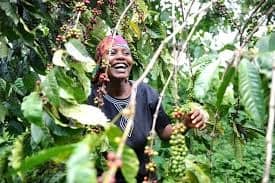Women have always played a major role in coffee farming and production throughout history and across the globe. Despite making up a vast sector of coffee production most women are confined to sorting jobs and have been notably excluded from decision making, propagation, property ownership and of course, equal wages. Across many regions women have specific cultural guidelines in the industry that often confine them to a lower socio-economic status.
These trends have changed markedly in the last two decades. We have seen multiple movements for gender equity emerge like Cafe Femenino which started in Peru back in 2003. In the majority of instances we see an emergence of women at the farm level of coffee due solely to womens efficient social organizing. In some regions this breaches more than social stigma, but law as well. As women started separating their coffee production from men’s they found themselves with a marketable product and many importers jumped at the opportunity to sell premium coffees, many of which were organic, with a women’s produced stamp. These types of mobilization have taken root in all three major coffee producing regions and co-ops of women farmers now range in size from a few dozen members to hundreds. Their perseverance has developed some of the highest grade coffees on the market today.
The social changes associated with women’s representation in coffee farming are unparalleled. In many instances women are gaining legal ownership of land, direct payments from their crops, and recognition for their work for the first time in generations. The ripple effect of this is similarly impressive. When women gain access to these aforementioned resources redistributing them in the community takes priority. We see the benefits of Women having a place in coffee production take form as community kitchens, schools, health centers and raising rates of household income. Even social stigmas are being reshaped to allot men more time in the hope and child rearing, children are having the option to get an education rather than work and women are carving their way into decision making beyond the farms but in all aspects of their communities.

